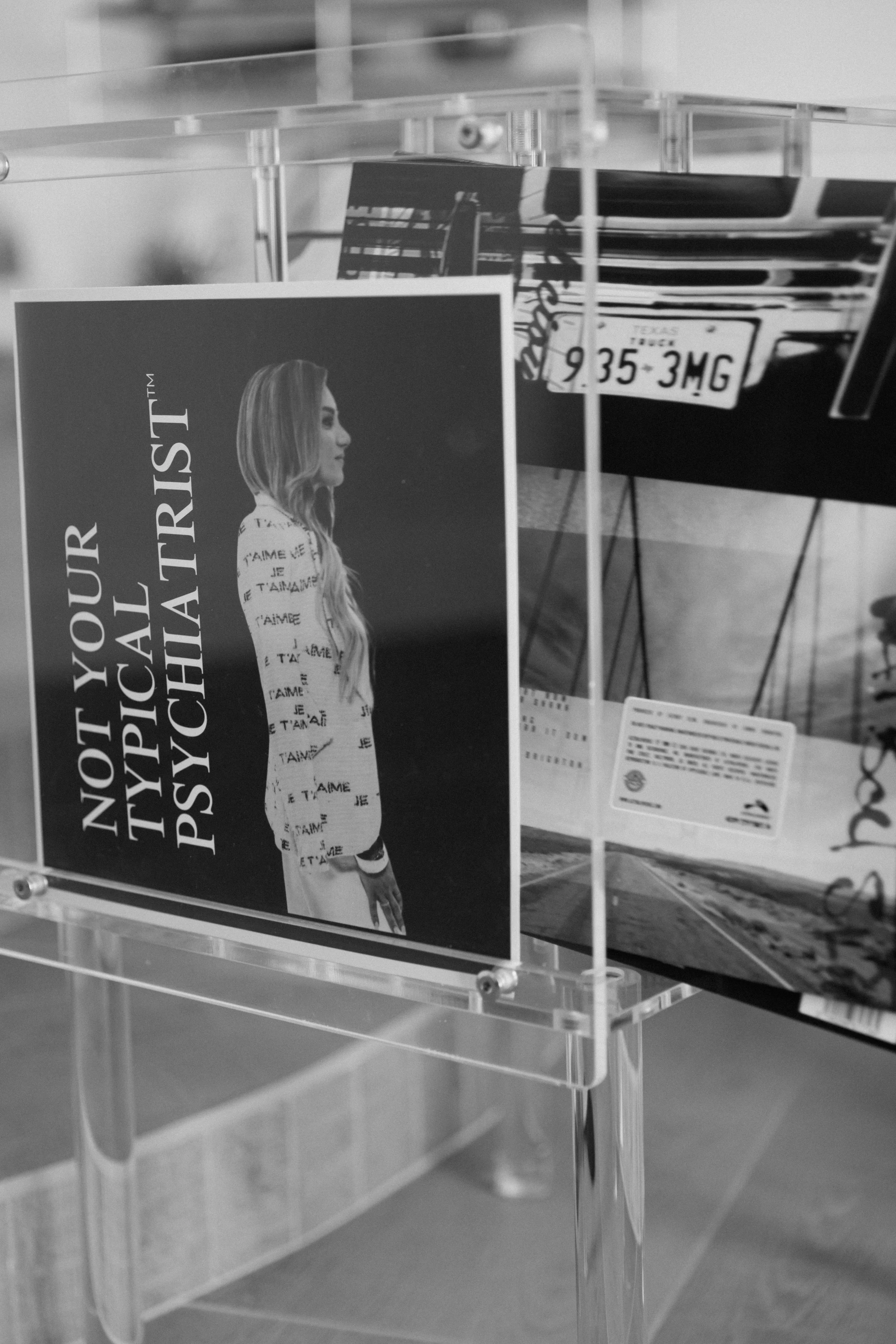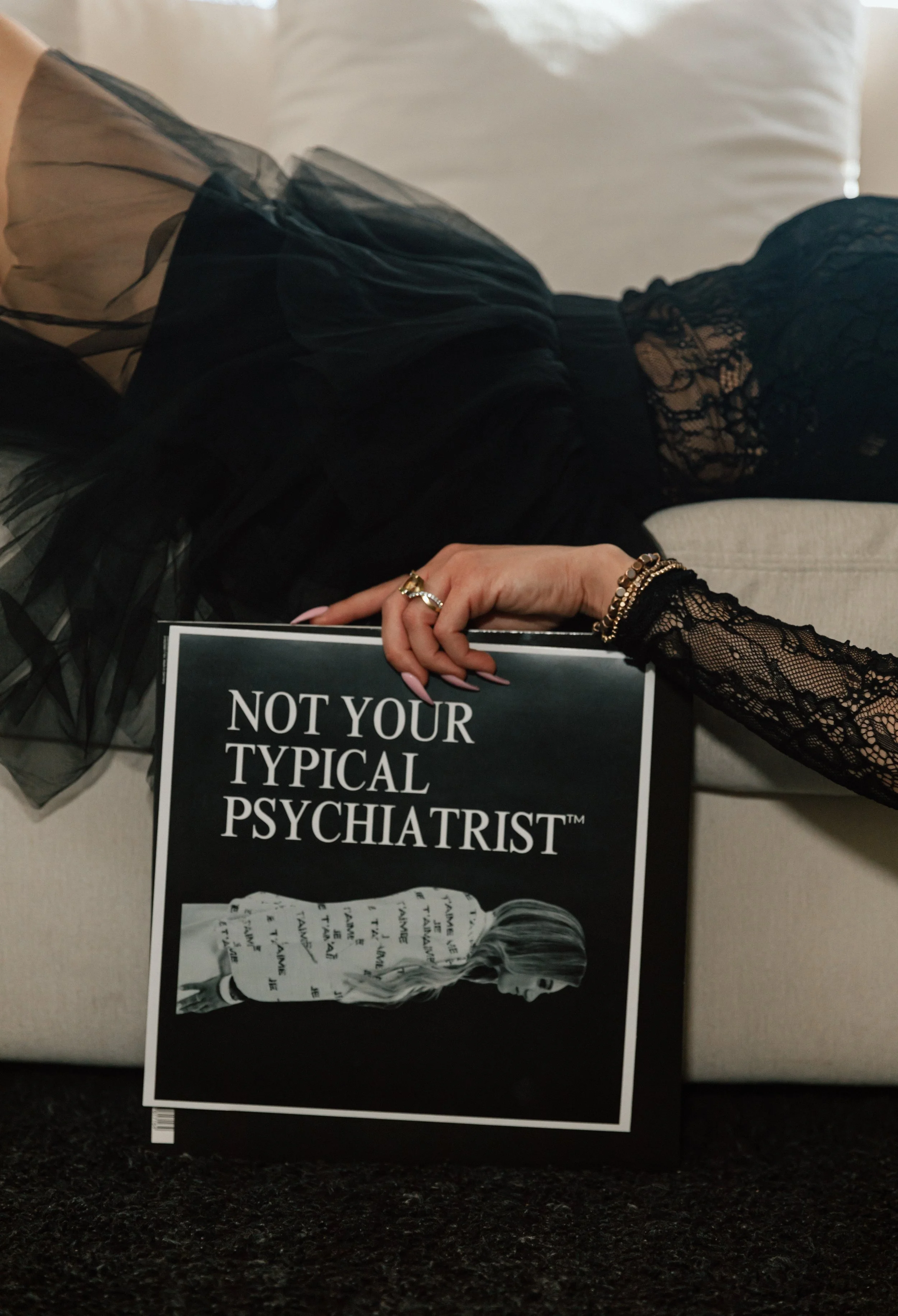
Fashion as Armor: Outfits That Amplify Your Inner Strength
Fashion is far more than aesthetic. It is a language. What you choose to wear communicates to the world and to yourself how you show up each day. While color psychology offers useful insights, true wardrobe empowerment goes beyond hues and shades. By intentionally selecting outfits with purpose, structure, and tactile elements, you can create attire that reinforces your inner strength, amplifies confidence, and serves as a daily tool for personal empowerment.

Unlocking the “Happiness Chemicals” with Dr. Mona Amini: Your 2026 C.H.E.M.I.S.T. for Joy
At Mon’Vie Mind Wellness we believe happiness isn’t just a by-product of life’s ups and downs. It’s a deliberate neuro-chemical strategy. Let’s shift from reactive “feel good when things happen” to proactive “engineer your feel good.” Today, we explore the four primary neuro-messengers that many call happiness chemicals and develop a tactical roadmap to optimize them.

The Sound of Self-Compassion: Crafting Playlists for Emotional Regulation
In today’s fast-paced world, self-compassion can sometimes feel like a luxury rather than a necessity. Yet, nurturing a compassionate relationship with yourself is essential for emotional stability, resilience, and overall mental health. One surprisingly powerful way to cultivate self-compassion is through something you already engage with daily: music.

Why We Can Dance for Hours: Endorphins, Synchrony, and Recovery on the Dance Floor
Why Dancing For Hours Feels Strangely Good
If you have ever danced through a marathon set and walked out feeling clear, connected, and somehow less tired than you expected, your experience is not just in your head. Music journalism platforms like EDM House Network have been highlighting emerging research that explains why long sets can feel more like a reset than a drain for many people. Extended listening and sustained movement are linked to endorphin release, higher pain thresholds, and delayed fatigue. A 2020 meta analysis in Psychological Bulletin found that music during exercise reliably delays perceived exhaustion and improves endurance. Other experimental work shows that moving in sync with music increases pain thresholds more than passive listening alone, suggesting that there is a real endorphin based mechanism behind that feeling of infinite stamina on the dance floor.

New Year, New Nervous System: Intention-Setting That Actually Sticks in 2026
The New Year invites big declarations, but your nervous system does not speak the language of “all or nothing.”
Traditional resolutions often sound like ultimatums: Never miss a workout, stop scrolling, eat perfectly, fix everything by February. That pressure spikes anxiety, lights up your threat response, and by the second or third slip, the brain labels the entire resolution as a failure.

Rest Is a Performance Habit: The Neuroscience of Recovery for High Achievers
We do not earn rest; we use it to perform. Recovery is a strategic input that stabilizes mood chemistry, protects attention, and improves memory consolidation. Neurologically, short, deliberate pauses reduce amygdala hypervigilance and allow the prefrontal cortex to reassert top-down control.

Techno, Trance, and the Climb Within: Cold Blue’s Mountain and the Practice of Sonic Healing
The Mountain Between Techno, Trance, and Mental Health
Electronic music is a language without words, and Cold Blue is fluent in it. His new album Mountain arrives November 14, 2025, after what the press describes as “six rotations” since his debut album Winter. Rather than chasing constant releases, producer Tobias Rinally chose a different path. He built this record slowly, through craft, patience, and genuine desire instead of deadlines.
That matters for our nervous systems. When an artist creates from desire rather than pressure, the music often carries a different texture. There is space, restraint, and a kind of emotional integrity that listeners can feel. Mountain is framed as a continuum of his signature purity and definition, potentially his artistic peak. To me, it reads like something else too. It feels like a carefully mapped inner ascent, written by someone who understands how darkness, light, exhaustion, and hope all coexist in one body.

The 30-Day Sonic Reset: A Practical Plan to Rewire Stress
The 30-Day Sonic Reset is a structured, science-informed plan that blends breathwork, curated music, and micro-reflection to help your nervous system downshift from chronic high alert into a steadier baseline. Think of it as a month-long laboratory for building a reliable self-regulation ritual you can access on demand. Each day you will follow a 10-minute core protocol, then layer in small additions each week - daylight, gentle movement, and optional community - to amplify results. This is not a crash program. It is a compassionate rhythm that respects how real brains and bodies adopt new habits: short, repeatable, and paired with cues your system can trust.

Boundaries, But Beautiful: Digital Hygiene You Will Actually Keep
Most of us do not lack willpower - we lack design. Traditional digital detox rules feel punitive or vague, so our brains revolt. Telling yourself, "stop scrolling" offers no replacement behavior, no sensory comfort, and no end point. Your predictive brain keeps scanning for the next ping because it has been trained to expect reward. Cortisol and dopamine interplay in a way that keeps the loop alive: a small stressor prompts checking, which yields a little novelty hit, which keeps the checking habit alive. The fix is not harsher rules - it is kinder systems that shift state first, then behavior. In other words, regulate the nervous system and the boundary becomes easier to honor.

Caregivers, Creatives, Clinicians: Recovery Protocols for Helpers
Helpers hold the emotional weight of families, communities, classrooms, clinics, and creative teams. You metabolize uncertainty for others, make high‑stakes choices with incomplete data, and stay warm in rooms that sometimes run cold. That noble load has a physiological price: sustained vigilance, decision density, and empathy fatigue keep the nervous system hovering in a high‑alert band. Over time, baseline stress creeps up, sleep frays, and the joy of the work blunts. The goal of this guide isn’t to make you tougher; it’s to make your recovery smarter, short, repeatable protocols that protect your attention, compassion, and creativity without requiring an empty calendar.

Holding Thanksgiving With Care: Gratitude, Love, and Nervous-System-Safe Boundaries
A Gentle Reframe for the Holiday
Thanksgiving can be radiant and rough at the same time. Love, food, and tradition often arrive alongside grief, complicated family histories, and the pressure to be endlessly cheerful. This guide offers a compassionate structure for the day: simple practices to ground your body, scripts to protect your peace, and sensory rituals (music or quiet) to help you reset when emotions run high. The goal isn’t a perfect gathering; it’s a day where your nervous system feels included and you leave with enough energy to meet tomorrow.

Bio-Rhythm Breaks: Syncing Productivity with Your Body’s Natural Flow
In a world that glorifies hustle and constant output, it is easy to ignore the body’s natural rhythms in the pursuit of productivity. Yet, true efficiency and sustained focus come not from working longer, but from working smarter by aligning your tasks and breaks with your ultradian rhythms and circadian cycles. Understanding and respecting these biological patterns allows you to optimize energy, improve focus, and prevent burnout.

Music as Medicine: Using EDM and Ambient Sound to Reset Mood
Music speaks the brain’s native language: rhythm. Steady tempos can entrain breathing and heart rhythms, helping the nervous system move from high alert into balance. Predictable builds create a safe rise in arousal, while cathartic drops model emotional release and resolution. Low frequencies are felt through the body, providing a grounding somatic cue that supports body awareness and calm.

Sonic Immersion, Explained: What to Expect, Why It Works, and How to Prepare
In a world of back-to-back notifications and relentless output, our nervous systems rarely get a true exhale. Sonic Immersion offers a structured, evidence-informed pause where your body can downshift safely and your mind can process without pressure. It’s especially supportive for high achievers navigating burnout, creatives craving fresh flow, caregivers and healthcare professionals needing replenishment, and anyone experiencing stress, overthinking, or sleep disruption. No meditation experience is required-come as you are and let the music do the heavy lifting while you receive, restore, and reconnect to yourself.

Micro-Rest, Macro-Impact: Resting Strategies That Fuel Creativity
In today’s culture, rest is often mistaken for laziness or indulgence. Yet, research consistently shows that deliberate rest is a cornerstone of high performance, creativity, and emotional resilience. Viewing rest as a luxury limits your potential. When reframed as a strategic habit, rest becomes a powerful tool that fuels focus, innovation, and mental clarity.

Dressing for Your Inner CEO: Mindset-Aligned Fashion for High-Stress Days
We all have those days when the pressure is on, the inbox is overflowing, and your to-do list could rival a New York skyscraper. On days like that, what you wear matters more than you might realize. Fashion is not just a visual statement. It’s a psychological toolkit. Dressing with intention can help you channel your inner CEO, boost confidence, and navigate high-stress moments with poise and authority.

Music-Facilitated Reset: Breath, Movement, and Melody for Busy Minds
When your mind is racing, your to-do list feels endless, and stress is creeping in, it can be difficult to find a moment of calm. Yet, small, intentional rituals combining breath, movement, and music can de-escalate overwhelm quickly. These practices are not indulgences. They are tools for emotional regulation, mental clarity, and sustaining focus in high-pressure moments.

Rest Reframed: The Power of Scheduled ‘Un-Doing’ for Mental Clarity
In a culture that celebrates constant action and productivity, the idea of deliberately doing nothing can feel radical. Yet, paradoxically, scheduled disengagement from tasks, what we might call “un-doing,” is one of the most effective ways to nurture creativity, resilience, and mental clarity. Rest is not just downtime. It is a strategic, performance-enhancing practice that allows your brain to recharge, reorganize, and return to work with sharper focus.

Reflections of the Self: Fashion, Body Image, and Mental Wellness
When you look in the mirror, what do you see and how do you feel?
In a world where first impressions are often visual, what we wear becomes a form of language. Fashion is more than fabric and trends; it is a mirror that reflects how we see ourselves and, often, how we wish to be seen.

Digital Detox and the Mind: Reclaiming Focus in a Hyperconnected World
In our hyperconnected world, screens dominate much of our waking hours. Emails, social media, notifications, and constant multitasking are normalized. While technology provides unprecedented connectivity and efficiency, overexposure to digital stimuli can negatively impact mental health. Excessive screen time has been associated with disrupted sleep, heightened anxiety, attention difficulties, and even depressive symptoms.

